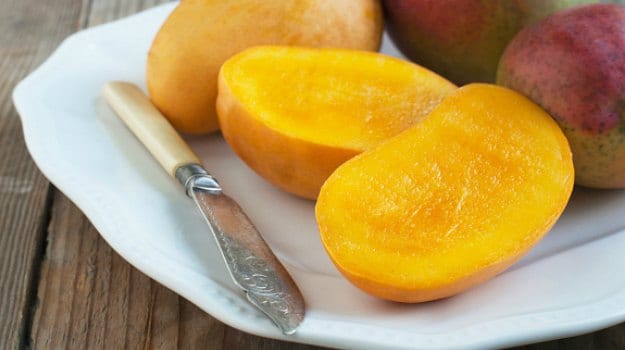They have identified the unique chemical signature of ripening for mangoes, a development that could lead to small hand-held electronic noses to detect the ripeness of not just mangoes but other fruits as well. Mangoes are one of the most important and popular tropical fruits with India producing approximately 40 percent of the world's supply.
"It is really important for people to be able to tell how ripe fruit is without having to taste it. This is important for fruit producers and supermarkets," said lead researcher Paul Monks, professor at the University of Leicester in Britain.
The new research, published in the journal Metabolomics, has shown that is possible to 'sniff' the ripeness of mangoes.
"We used a novel fast-sensitive "electronic-nose" for sniffing volatile compounds from the ripening fruit. Popular supermarket species of mango were used. In particular, the work showed an increase in ester compounds -- the smell of pear drops -- was a particular marker of over ripe fruit," Monks noted.
The work has, for the first time, followed in real-time and detail the chemical signatures of ripening for mangoes, Monks said.
"There are some real potential applications of this research for making devices to be able to assess ripeness non-destructively. The information gained from the work could be used to develop small, hand-held electronic noses that could be deployed to assess fruit maturity prior to picking and thus determine the optimum point to harvest mature green mangoes," he added.
(This story has not been edited by NDTV staff and is auto-generated from a syndicated feed.)






